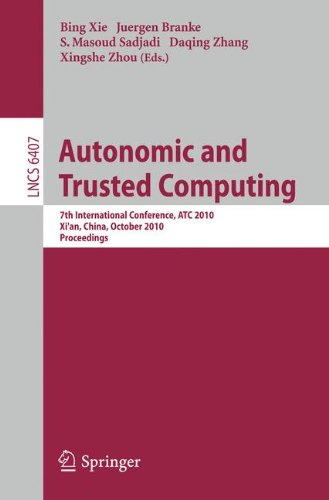

Most ebook files are in PDF format, so you can easily read them using various software such as Foxit Reader or directly on the Google Chrome browser.
Some ebook files are released by publishers in other formats such as .awz, .mobi, .epub, .fb2, etc. You may need to install specific software to read these formats on mobile/PC, such as Calibre.
Please read the tutorial at this link: https://ebookbell.com/faq
We offer FREE conversion to the popular formats you request; however, this may take some time. Therefore, right after payment, please email us, and we will try to provide the service as quickly as possible.
For some exceptional file formats or broken links (if any), please refrain from opening any disputes. Instead, email us first, and we will try to assist within a maximum of 6 hours.
EbookBell Team

4.4
22 reviewsComputing systems including hardware, software, communication, and networks are becoming increasingly large and heterogeneous. In short, they have become - creasingly complex. Such complexity is getting even more critical with the ubiquitous permeation of embedded devices and other pervasive systems. To cope with the growing and ubiquitous complexity, autonomic computing (AC) focuses on self-manageable computing and communication systems that exhibit self-awareness, self-configuration, self-optimization, self-healing, self-protection and other self-* properties to the maximum extent possible without human intervention or guidance. Organic computing (OC) additionally addresses adaptability, robustness, and c- trolled emergence as well as nature-inspired concepts for self-organization. Any autonomic or organic system must be trustworthy to avoid the risk of losing control and retain confidence that the system will not fail. Trust and/or distrust relationships in the Internet and in pervasive infrastructures are key factors to enable dynamic interaction and cooperation of various users, systems, and services. Trusted/ trustworthy computing (TC) aims at making computing and communication systems––as well as services––available, predictable, traceable, controllable, asse- able, sustainable, dependable, persistent, security/privacy protectable, etc. A series of grand challenges exists to achieve practical autonomic or organic s- tems with truly trustworthy services. Started in 2005, ATC conferences have been held at Nagasaki (Japan), Vienna (Austria), Three Gorges (China), Hong Kong (China), Oslo (Norway) and Brisbane (Australia). The 2010 proceedings contain the papers presented at the 7th International Conference on Autonomic and Trusted Computing (ATC 2010), held in Xi’an, China, October 26–29, 2010.